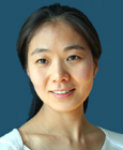 Anna Kim
Anna Kim
University of Cambridge
Anna Kim is a PhD candidate in the Organizational Behavior Subject Group at Cambridge Judge Business School, University of Cambridge. Anna's dissertation consists of essays on the elaboration of institutional logics, temporal sensemaking, and corporate-community relations as a negotiated order. She uses qualitative methods in order to gain an in-depth understanding of organizational life in the rural areas of low-income countries. She has published a book chapter on Fair Trade in Asia (Ashgate) and a teaching case on M-PESA in Kenya (ECCH).
Anna is Lecturer in Business Ethics and Course Convenor of the Business and Management Subject Group for Pembroke-King's Programme at Cambridge University. She has worked for Oxfam International and provided research and consultancy services for NGOs and international organizations, including World Health Organization and Kenya Education Partnerships. Anna holds a Bachelor's degree in Business Administration from Seoul National University and an MBA from Cambridge Judge Business School.
Making sense of time: A study of fairtrade tea producer organizations in East Africa
We investigate how agricultural producers in low-income countries make sense of temporal asymmetry between present and future orientation, linear and cyclical perspectives, and monochronic and polychronic ways of working when they encounter development projects led by organizations in the West. Our empirical context is eight Fairtrade-certified tea producer organizations in Kenya, Tanzania, and Uganda. We identify sensegiving activities of Western organizations, their local staff members, and the representatives of farmers and workers, rooted in unequal power relations in the local and global context. However farmers and workers do not simply adopt Western assumptions and they create meanings to accommodate multiple perspectives of time, i.e. looking to both present and future, a spiral view of development, and planning with flexibility. The study contributes to the understanding of time and sensemaking, sensemaking and power, and development and organization studies.
